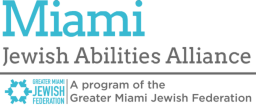IEP – Individualized Education Program
Once you reach age 16, a transition Individualized Education Program (IEP) meeting must be held by the IEP team to discuss future services.
The Individuals with Disabilities Education Act (IDEA 04) requires that in the first IEP that will be in effect when the student turns 16, his/her annual IEP must include a discussion about transition service needs.
The IEP must include a statement about your future needs along with any services that will help you develop the skills necessary to meet these goals. It should list any non-educational agencies that might provide you with additional support and consider what strategies would assist you in taking steps toward vocational, employment, independent and post high school educational plans. In other words, it is creating goals for your future.
Note: The transition IEP must be signed at least one year before you reach the age of 18. It declares that you been informed of your rights and are aware that these rights transfer to you after the age of 18.
“Who is rich? He/she who rejoices in his/her portion.”
In the IEP document, focus on: vocational education, adult education programs, employment goals and independent living skills. Include factors such as: academic preparation, community experience, development of vocational and independent living objectives and, if applicable, a functional vocational evaluation.
A summary of performance is also required. Provided by the schools, this document assists in the process from school to post school activities and includes the following: a summary of your academic achievements and functional performance, recommendations on how to assist you in meeting post-secondary goals and a list of the accommodations and modifications that were used in high school.
The law also requires that a statement of your transition goals and services be included in the transition plan. Schools must report to your parents on the progress towards meeting these transition goals.
Transition Planning Programs
School districts and county offices offer specific programs that you can participate in once you reach the age of 16. Check with your local school district or county Department of Education to see what types of programs are available and ensure that if a meeting is held that any supporting organizations and specialists are brought to the table. Some example programs include:
-
- Workability: Prepares high school students with disabilities for successful employment with an emphasis on work-based learning opportunities.
Best for students with mild to moderate disabilities
- Workability: Prepares high school students with disabilities for successful employment with an emphasis on work-based learning opportunities.
-
- Transition Partnership Project: Provides service coordination, job development and job coaching for students with significant disabilities.
-
- Adult Transition Program: Emphasizes community-based instruction and job training experiences with goals of independent living and self-sufficiency.
For students over 17 with developmental disabilities
- Adult Transition Program: Emphasizes community-based instruction and job training experiences with goals of independent living and self-sufficiency.
-
- Bridges: Provides benefits planning and counseling to people with disabilities and their families. Sponsored by the Social Security Administration and Department of Rehabilitation; for people with moderate to severe disabilities who are receiving SSI or who are eligible for SSI.
Local Resources
Florida students may choose from one of five different types of diplomas
Vocational Rehabilitation (VR) is a federal-state program that helps people who have physical or mental disabilities get or keep a job. VR mission is to help people with disabilities find meaningful careers. They offer career counseling, financial assistance with tuition and job counseling.
Individualized Education Program (IEP) Resources for Parents through the Florida Department of Health explains the IEP process.
Disability Rights Florida Four Types of Transition Plans describes the four types of transition plans for students.
The Transitions Planning Timeline Checklist, created by The Associated: Jewish Community Federation of Baltimore’s Disabilities Task Force for the Baltimore Jewish Abilities Alliance, is a great resource for navigating transitions.


